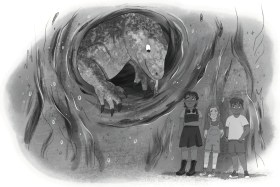The alleged mushroom poisoning case involving Erin Patterson has become one of Australia’s most talked-about true crime stories in recent memory – and one that seems tailor-made for the booming true crime podcast genre.
Jump to:
Podcasting true crime
Patterson, a woman from regional Victoria, stands accused of serving a beef Wellington lunch laced with deadly death cap mushrooms to her in-laws. Three people died. While the case remains before the courts – and Patterson has pleaded not guilty to multiple charges – its elements have captured national attention: mystery, family tension and possible malice cloaked in domestic routine.
The case also reflects the evolution of the true crime genre. Once the domain of niche legal or investigative journalism, true crime has become a dominant media form – particularly in podcasting. Series such as Serial, The Teacher’s Pet, Casefile and Shandee’s Story have shown the public’s hunger for cases filled with twists, moral complexity and flawed systems.
There are numerous true crime podcasts about the Patterson case, including daily updates from the courtroom produced by ABC. With a compelling central figure, conflicting narratives, a small-town setting, and unresolved tragedy, it’s practically podcast-ready.
The allure of true crime
What is it about true crime that keeps audiences returning?
For some, it’s a search for justice – or a fascination with its absence. For others, it’s the thrill of safely confronting danger from a distance. At its best, true crime storytelling interrogates institutions, humanises those affected and sheds light on systemic failings. At its worst, it risks tipping into sensationalism and exploitation – concerns that have grown as the genre becomes increasingly commercialised.
In Australia, the genre has also proven powerful for investigative journalism. Hedley Thomas’ The Teacher’s Pet podcast not only drew millions of listeners, but led to the reopening of a cold case and the eventual conviction of Chris Dawson for murder. It cemented podcasting as a potent – if sometimes ethically fraught – vehicle for public interest journalism.
Read: What’s your time worth? A creative’s guide to charging fairly
As the Erin Patterson case continues to unfold, it seems inevitable that writers and producers will attempt to document and dissect it. But doing so raises difficult questions: how do we engage ethically with real-life tragedy? When does public interest become voyeurism? And who has the right to tell the story of a crime?
For the creative sector, these questions are not theoretical. Podcasters, filmmakers, journalists and writers must navigate a shifting ethical landscape, balancing storytelling with sensitivity, legality and respect for victims and their families.
Whether or not this case becomes the next podcast phenomenon, one thing is clear – our cultural fixation on true crime shows no sign of slowing.
Erin Patterson’s murder trial continues at the Latrobe Valley Law Courts in Morwell.






